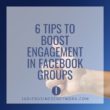One of the reasons I enjoy Twitter is that it helps me capitalize on connections and opportunities in unexpected ways. One of those ways is using Twitter hashtags. A hashtag is the pound sign (as in #) on your keyboard. When a hashtag is included with a Tweet, it creates a hyperlink that opens up a page to all Tweets containing that hashtag.
When you peruse those Tweets, you'll see in real time what people using that hashtag are saying and thinking about a particular topic. While there are a variety of different hashtags, they generally fall into four categories.
- Frequently Recurring Event Hashtags. A good example is #smallbizchat. Hosted on Wednesday evenings by Melinda Emerson, it's an hour-long chat where participants use the #smallbizchat hashtag as they participate in the chat.
When my husband and I were guests last year (the topic was how to manage a successful business with your spouse), we answered questions using the #smallbizchat hashtag on Tweetgrid or Tweetchat. (There are other options, including SavorChat, but Tweetgrid and Tweetchat are the most popular.) Each is easy to use, though it takes participating in a chat to see how it works.
All Tweets, including replies and ReTweets, are automatically posted using the appropriate hashtag. This turns everyone on Twitter into a possible participant at your event. People who have no advance knowledge of the event often join the chat when they see an interesting Tweet with the hashtag. They can log into Tweetgrid or Tweetchat like everyone else, join in the chat and meet other participants.
Last year, I hosted #indiechat, but discontinued it in favor of #beautychat, aimed at people who are interested in keeping with the latest beauty industry trends. The first #beautychat will take place at 8:00pm New York Time on 11 April 2010, so mark your calendar if this topic interests you. I will post more about that shortly.
Other popular hashtags used for events include #journchat, a weekly social media and public relations discussion, and #blogchat, a weekly discussion about blogging.
You can find recurring Twitter chats that interest you at this Twitter chat schedule maintained Robert Swanick.
- Non-Frequent Event Hashtags. Unlike the type of event discussed above, non-frequent events are things like annual conferences or impromptu events that may or may not be scheduled in advance. A good example of a planned non-frequent event is the upcoming Conference of Handcrafted Soapmakers, where I'll be speaking next month. We are using the #soapconf10 hashtag. Even though the conference is a month away, we are already creating community and excitement around the event.
Impromptu events like Tweetups are also great times to use a hashtag. People who are meeting up generally choose a hashtag on the spot and just start using it. These unplanned events can result in people joining the Tweetup just because they happen to be in the area and see the Tweet in their Twitter stream.
- Subject Matter Hashtags. Unlike the above two types of hashtags, subject matter hashtags are not associated with an event. Instead, they are used to connect people around a particular topic. For example, I created the #FitCEOs hashtag to connect with other CEOs who are simultaneously pursuing physical fitness and business success. We add the hashtag to Tweets sharing workout details, healthy recipes, fitness apps and articles. It's fun to connect with other people who work hard to be physically fit as we balance the demands of business leadership.
Another popular subject matter hashtag is #cosmetics, which I use it to Tweet interesting information about industry trends and IBN members. Examples are here and here. I enjoy sharing the latest IBN member news with my followers, especially when they join IBN or renew their membership, are featured in the media, publish informative blog posts or create innovative products. This allows me to participate in the expansion of their sphere of influence. It also serves to introduce people to small scale cosmetics manufacture in a positive way, a task I take seriously as IBN's founder and leader.
Another of my favorite subject matter hashtags is #fitness. It's kind of like the #FitCEOs hashtag only more people use it. I've met some great people, including fitness professionals, using the #fitness hashtag, and some of them have shared wonderful fitness tips with me.
If you have an interest in a special area, using a generic word is a great way to connect with other people. You can search on whether people are using a particular generic hashtag by typing it (including the hashtag) in here. If nothing comes up, it means no one is using that hashtag — at least at that time. Try a more generic term and you're bound to find something no one is using. Start using it and enjoy establishing new relationships around shared interests.
When you use hashtags to Tweet your blog posts, people who follow that topic on Twitter will be exposed to your post. If your Tweet appeals to them, they may read, ReTweet, or comment on your post. Using subject matter #hashtags in your field of expertise will increase your sphere of influence among like-minded people, and this is one of the most effective ways to increase your social capital and expand your business.
- Group Hashtags. Group hashtags are used by people who are a part of a group. For example, I often use the #IBN hashtag when I Tweet about my members or about IBN-related events. People often ReTweet the information to keep othes informed about what IBN members are doing. This means that the word about the great products my members make is spreading to places we could not reach efficiently by any other means.
If you are the leader of a group or “tribe,” you can create a hashtag to help everyone collaborate and follow the action.
Another example of this is the #thirdtribe hashtag created by Chris Brogan and his team that maintain a membership-based information and discussion area for people who want to gain additional insight into how Chris and others do business. People Tweet about their conversations and the fun people they meet there.
If your business caters to a special group of people, you might create a hashtag, as Chris and I have done, to promote your tribe and facilitate their communication with one another.
- Branded Hashtags An example of a branded hashtag is #linchpin, named for the new book of that title by Seth Godin, or #engage, the title of a new book by Brian Solis. People use #linchpin and #engage to share thoughts on the books, pictures of the books and quotes from the books.
Another example of a branded hashtag is #livestrong, used by the Lance Armstrong Foundation and his “tribe” to Tweet about efforts to eradicate cancer.
Branded hashtags are great, but they are generally most useful to very well known brands and registered trademarks that people are already naturally talking about. Most very small businesses don't have brands like that. Since the last thing you want to do is create a hashtag that no one but you is using, I generally advise Tweeting a generic hashtag from your branded Twitter page.
If you are a small business owner, you can get a lot of mileage out of hashtags if you are creative and savvy about using them. Remember that it's not failure to create a hashtag that doesn't catch on. As long as you don't throw in the towel too soon, you'll know when the logic behind a particular hashtag needs to be reconsidered. Just remember to create something that will interest and help others, not something you think will just help you sell your products.
Question: What hashtags do you use? Are there other types of hashtags or hashtag resources that I missed?
Visit Planet Label for blank, laser, inkjet or custom printed labels. Shop by label material, printer, shape, size or use. Tell Mike that Donna Maria sent you!



